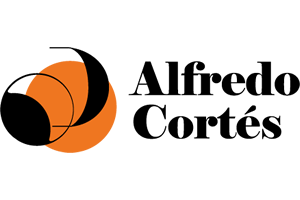The composer Gioachino Rossini’s devotion to good food is the central theme of the gastronomic days ‘Rossini: From the stave to the plate’, which will take place at the IES Miralbueno in Zaragoza from October 24 to 28. This initiative is one of the activities prior to the II Season of Lyric and Dance, organized by the Government of Aragon with the collaboration of the City Council of Zaragoza. Rossini’s ‘The Barber of Seville’ is the production that will open the Season on November 5 and 6 at the Teatro Principal of Zaragoza.
Rossini, besides being an excellent composer, was passionate about cooking, and celebrated both in his villa in Passy and in his Parisian residence of Chausée d’Antin parties in which he received not only renowned personalities of the time but also people with accredited knowledge of cooking. In the most important cookbooks in Europe appear the recipes of the dishes created by Rossini and those dedicated to him. These include tournedos Rossini, cannelloni Rossini, eggs Rossini, consommé Rossini, hazelnut soup Rossini or tagliatelle Rossini.
Some of these dishes can be tasted at IES Miralbueno. The School of Hotel Management of the institute will offer a Rossini-inspired tasting menu consisting of appetizer, starter, fish, meat and dessert. Specifically, the menu, priced at 25 euros, is as follows: eggs Rossini style, maccheroni Rossini, sole popietas in white wine, tournedos Rossini and William Tell tart.
The days of service during the whole course and also during this special week will be Tuesdays, Wednesdays and Fridays. The entrance of clients to the dining room is at 14h. Reservations can be made at 976330450, from 8 am to 2 pm.
In addition to these gastronomic days, the Directorate General of Culture of the Government of Aragon has prepared two conferences at the IAACC Pablo Serrano, to bring the composer to the public from a more intellectual point of view. The first, by José Antonio González, will take place on October 25 (19h) and will be entitled ‘The Rossini Code’. Gonzalez has been organizer of the Festival de la Ribagorza, among other duties, and currently serves as director of the Choir Entretenerías and as professor of Music Language, Piano, Choir and History of Music at the Municipal School of Music in Zaragoza.
The second session will be given by Emilio Casares and will analyze the relationship between ‘Rossini and Spain’, on October 27th (19h). With more than a hundred publications behind him and a great research activity specialized in the music of the 19th and 20th centuries, Casares received the Gold Medal for Merit in Fine Arts from the Ministry of Education and Culture in 2016. In addition, Casares was part of the creation of the Complutense Institute of Musical Sciences (ICCMU), from which an immense activity of heritage recovery has been made, which distinguishes it as one of the most important musicological research centers in Europe.

II Season of Opera and Dance
With the aim of revitalizing the Aragonese scene with stable quality proposals, the Government of Aragon, with the collaboration of the City Council of Zaragoza, organizes the II Season of Lyric and Dance. This year’s program combines great Aragonese, national and international artists in first class shows updated to the 21st century, with the purpose of building loyalty among music lovers while bringing opera and dance closer to the general public. This season is consolidated with three proposals of the Aragonese Government’s own production in two top-class venues: the Teatro Principal, the Auditorio de Zaragoza and the Palacio de Congresos.
The II Season of Lyric and Dance will kick off in November with two performances (on the 5th at 8 p.m. and on the 6th at 6 p.m.) of ‘The Barber of Seville’, in a Teatro Principal that will see the return of the most famous barber in the history of opera in a show reconverted to modern times, with the aim of attracting a new audience. The staging will introduce the audience to the classic world of the famous barber, mixing Rossini’s buffo imaginary and the present, and establishing an unexpected dialogue between the music of the young Rossini and modern youth music movements such as rock and punk.
Leading this production will be the regisseur Leo Castaldi and the Orquesta Reino de Aragón, conducted by Ricardo Casero. Accompanying him in this lyrical challenge will be the Coro Amici Musicae and a cast of young voices with Ricardo Seguel in the role of Don Bartolo, replacing Carlos Chausson, who will not be able to take part in this Season. In the role of don Basilio, the bass Pavel Chervinsky will be incorporated.
Later, on December 17 (8 p.m.) and 18 (6 p.m.), the Aragonese company LaMov will rescue Shakespeare’s myth at the Palacio de Congresos with ‘Juliets and Romeos’. The proposal is inspired by the captivating story of love, hate and death of the young Juliet and Romeo. And it does so by bringing it to the present day, starting from the Shakespearean era and the complex and multifaceted concept of love. In this play, and through different characters and relationships, LaMov will portray some of the various types of love and the different ways in which it can manifest itself. Thus, he will make a journey from the concept of romantic love, oppressive love, idealized love, forbidden love, impossible love, etc., to all kinds of love and polyamory. LaMov’s movements will be accompanied by the music of the Katharsis Ensemble Orchestra.
Finally, the Auditorio de Zaragoza will be the stage on December 21 (8 pm) for a great tribute to the centenary of Miguel Fleta’s debut at the Teatro Real in Madrid, which will close the II Temporada de Lírica y Danza. A young Fleta played the role of Don José in ‘Carmen’ in March 1922, with such success that even the Royal Family attended the second performance of ‘Carmen’. On these stages, Fleta sang four performances of ‘Carmen’ and another four of ‘Tosca’, leading the audience to delirium with this Puccinian title. One hundred years later, the Auditorium will host a spectacular lyrical gala with pieces from these two operas, popular and attractive to the public, but with top-level artists such as mezzo-soprano Ketevan Kemoklidze and the Orquesta Reino de Aragón -with Ricardo Casero conducting-, which is incorporated to this gala with respect to the initially planned program.














